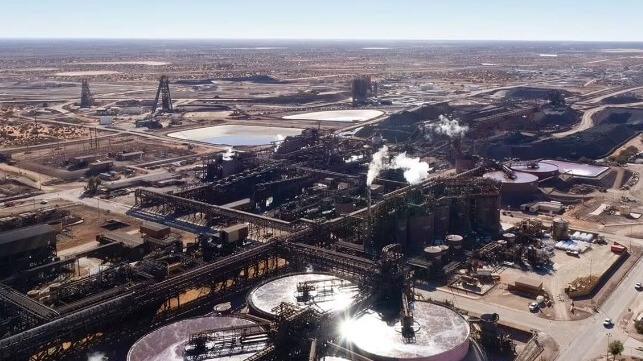Mining Giant BHP Sponsors its Own Nuclear-Propulsion Study

Australian mining conglomerate BHP has become the latest enterprise to explore onboard nuclear propulsion, joining a growing list of well-capitalized investors who are considering the technology's long-term potential.
BHP is a major customer of the bulk shipping segment, and it has ambitious decarbonization targets. It recently hired Dutch nuclear energy consultancy ULC-Energy to study a variety of nuclear technologies that could be used to power merchant shipping. The resulting white paper spans regulatory, political and commercial matters, including port access, licensing and vessel classification, capital costs and crew training.
While nuclear propulsion would have many benefits - speed, near-unlimited range, reliability, near-zero GHG emissions - the study noted the known changes that would have to happen for implementation. Full-scale nuclear propulsion would require new regulations, changes to operations, and solutions to technical problems.

that matters most
Get the latest maritime news delivered to your inbox daily.
"It’s not straightforward nor easy – and it will require a range of stakeholders to cooperate to make civil nuclear marine solutions possible,” said Dirk Rabelink, CEO of ULC-Energy.
In many ways, BHP is a natural fit for the exploration of nuclear propulsion options. The firm is a top charterer of bulker tonnage, and shipping plays a role in its Scope 3 emissions. It is also a producer of uranium ore - the key ingredient in nuclear fuel - and a proponent of nuclear power for shoreside applications. BHP is a leading voice in the push to legalize nuclear power generation as a solution to Australia's greenhouse gas emissions.
